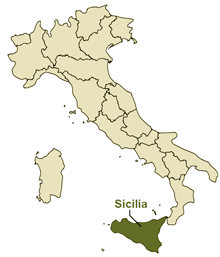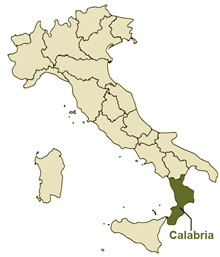
Regions of Italy
We are working to add more regions and producers to visit for our customers...


Marche
The beautiful and relatively unknown Marche region is located on the Italy’s east coast with the Apennine Mountains located to its west and a long Adriatic coastline bordering on Abruzzo to the south. This region of Italy is often referred to as ”All of Italy” in one region because of its wonderful distinctive unspoilt long coastline, then a wide coastal plain and finally the Sibillini Mountains running north to south on its western flank.
Normally Tuscany or Puglia are considered as the regions of Italy from which the best extra virgin olive oils are to be found, but this is actually inaccurate as there are many other regions of Italy that produce olive oils which are just as refined, and in Marche you can find many fine extra virgin olive oils across the whole region. The Marche region also has a long history of producing excellent extra virgin olive oils, with especially fine oils coming from the Cartoceto area which has the only DOP for olive oil in the region.
The olive varieties commonly found in Marche are the Frantoio, Leccino, Carboncella, Rosciola and
Raggia and several of these varieties are also grown in other olive oil producing parts of Italy.
In the Marche region the Academy hosts both specialist professional tours and workshops as well as olive oil appreciation workshops specially developed for clients with a limited knowledge of the production extra virgin olive oil, and we are pleased that both of these offerings are proving increasingly popular.
We at the Academy know the Marche region extremely well as several members of our team are from near Ancona the regions capital and we have been working with both olive oil and wine producers in the Marche region for over ten years and in that time have been involved with many olive oil and food related events across the region.
Our extra virgin olive oil appreciation courses in Marche are organised by a local olive oil and wine producer, an olive oil producer and professional taster and we have been working for many years with a well known local agronomist and olive specialist who works with olive oil producers throughout the region. They have all contributed to put together a very detailed and exciting series of workshops and talks for our clients.
These experts together with other specialists in our team have produced the range of courses in olive oil appreciation which we now offer to our professional clients and the public with our courses being refined and improved over the many years that we have been holding them.
The courses and workshops are all held in the central and southern parts of the Marche region, in the south being near the beautiful Marche town of Ripatransone and in central Marche near the Adriatic resort of Senigallia and another just south of Ancona, all these areas being well known for the high quality extra virgin olive oil they produce.
Our courses near Senigallia are based at the beautiful Castello di Monterado and clients can also stay at the Castello for the duration of the courses, either just for the basic one day course or for the more intense and detailed two and three day courses.
Our courses that are held inland just south of Ancona normally are normally only one day in length, and they are tutored by a professional olive oil taster and oil producer who has many years of experience in producing fine organic extra virgin olive oils..
In the south of the region we usually hold our courses at a well known wine and olive oil producer who is based close to the beautiful and historic village of Ripatransone and again accommodation can be arranged if required.

Sicily
Sicily or Sicilia in Italian, is so very different in so many ways from the rest of mainland Italy that it could be its own independent country and which to this day many Sicilians think it still should be as it was in recent past. It is the largest island in the Mediterranean sea lying just south of mainland Italy and dominated by the active volcano Mount Etna. It is in many ways Sicily today is very much a product of its history, having been invaded and ruled over many thousands of years by many races including the Phoenicians, Greeks and Normans. Sicily today is home to a large variety of agricultural products including citrus fruits, grapes, olives, artichokes, pistachios and mulberries also many trees that are typical of the Mediterranean region such as palm trees and stone pines.
Salvatore Romano a member of the Mediterranean olive oil academy team and olive oil producer near Catania in Sicily is passionate about Sicilian produce and olive oil, he was the founder of Tasting Sicily and has a special interest in olive oil s from lesser known varieties. Together with the rest of our team he works closely with olive oil producers and olive oil experts to promote Sicilian olive oil in both Europe and other countries across the world. Salvatore can be seen being involved with picking and processing olives with friends and neighbours near his home village in Sicily in this lovely video.
The large size of the Island allows for many micro-climates which are excellent for the cultivation of olives which are used for producing olive oils and edible olives. The wide range of varieties of olive cultivars found on Sicily include the ogliarola messinese, tonda iblea, cerasuola, nocellara, biancolilla and moresca. Sicilian olive varieties trace their origins on the island to many centuries BC and it is believed that the first to introduced were the ornamental oleaster trees and then much later the Greek Kalamata which was probably the first domesticated cultivar brought to Sicily and which is still preserved today as a single ancient tree specimen in the eastern part of the island. It is difficult to think of Sicilian food without thinking about Sicilian olive oil and Sicilian extra virgin olive oil is among the world’s most fragrant and appetizing olive oils. It is believed that the very fertile soil in most of Sicily and which in eastern region is of volcanic origin, allows for the propagation of extremely productive olive tree which in turn then produce some of the world's best extra virgin olive oils.
Sicilian extra virgin olive oil along with oils from other parts of southern Italy have for a long time been involved in scandals about their provenance and purity but in 2016 Sicilian extra virgin olive oil was granted the important PGI Protected geographical Indication by the EU Commission this identifies a region, a place or a country where their agriculture and produce of that area are of a given quality. Sicilian olive oils are now to be found in most countries across the world and many are now winning wards at International olive oil competitions.
Our team at the Mediterranean olive oil academy are also members of Slow Food groups in their individual countries and we work where possible with producers who are also members of the international Slow Food organisation. In 2015 Slow Food International launched their Presidia status for olive oils produced in Italy and being granted the Presidia has done much to help smaller producers who grow less well known olive varieties produced in relatively small amounts of olive oil to become more recognised both in Italy and around the world.
Extra virgin olive oils from the coastal regions of Sicily often have very intense flavours and for example olive oils from the regions around Ragusa and Trapani tend to have a more structured body and to be a lot more fruity. Extra virgin olive oils from hilly areas in the centre of the Island tend to be more full bodied and have a well rounded flavour. Sicilian olive oil is found throughout the world and is becoming increasingly well known for its quality and fantastic aroma and taste, in fact the ancient Athenians preferred Sicilian olive oil to their own, though some of the olives grown in Sicily and Greece at that time were actually the same variety.
We believe that the producers who we are involved with both in Sicily and in the east of Italy are all excellent examples of individuals striving to produce the best extra virgin olive oil and we are very pleased to have been involved with them for many years


Calabria
Calabria is the second biggest region of Italy for agricultural production and land size after Puglia, the unusual shape of its territory which is surrounded by 800km of coastline, creates a very good microclimate for growing olive trees and many different olive varieties can be found across the region. The quality of Calabrian olive oil is exceptionally high and if we consider the amount of production compared with the size of the region, then Calabria is in fact the biggest region of Italy for olive oil production.
Olive oil production is not only one of the most important, but also one of the main cultural aspects of the Mediterranean region and countries, so much so that olive oil production has deeply influenced the Mediterranean region culture and diet over the centuries. The regular consumption of olive oil as well as of whole olives, pickled ones and olive patè, is typical of the Mediterranean diet and can be found in all countries in the region, from Spain to Greece as well as Mediterranean north Africa.
In the Calabrian region of Italy, olive trees cultivation has a very long tradition, it was first brought in this part of Italy by the Greeks and it quickly became one of the main areas of major olive oil production at that time. When the Romans took over this part of Italy, olive cultivation almost died out as the Romans preferred the olive oil that was imported from Spain and Africa, and it was also used as a form of punishment for the local population who fought against Roman domination in the region.
The major reintroduction of olive tree cultivation and olive oil making in Calabria was made by the monks during the early medieval times, they experimented with grafting using the local variety of trees and by the 11th century they had started the cultivation of the Dolce di Rossano variety in the Abbey of Saint Nilo in the east coast, in the Cosenza province, and since then its production has gradually and steadily increased.
By the end of the 18th century, olive oil production was established across the whole region of Calabria and by the mid 19th century the region had become one of the main producers of olive oil, wine and citrus fruits.
There are many beautiful natural and historical places to visit in this wonderful rural region of southern Italy. The region has several national parks such as Pollino and Sila and with 800km of coastline there are plenty of beaches and many lovely coastal resorts. There are also many Romans and Greek archeological sites that can be visited and several castles and abbeys from both medieval times and also the Norman period of conquest of the region.
We are very pleased to collaborate with traditional producers within the Catanzaro province and to offer our clients tours and tastings in this part of Calabria as well as visits to local olive oil producers who have been making olive oil in this part of the Mediterranean for generations.



